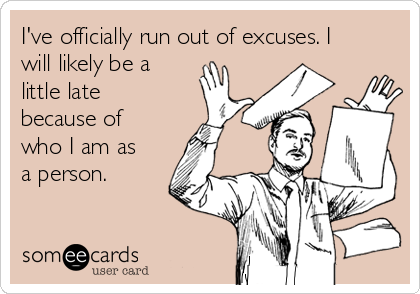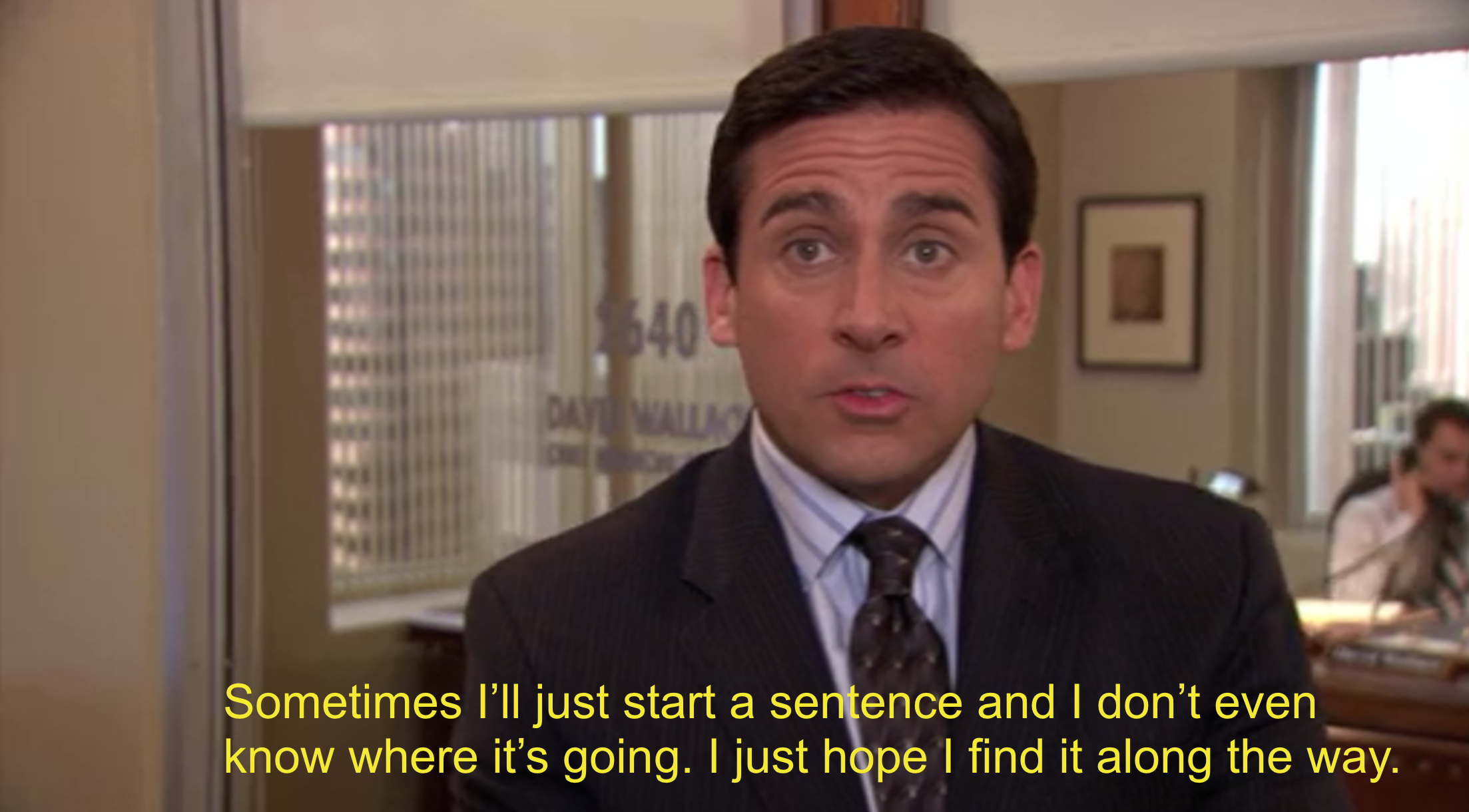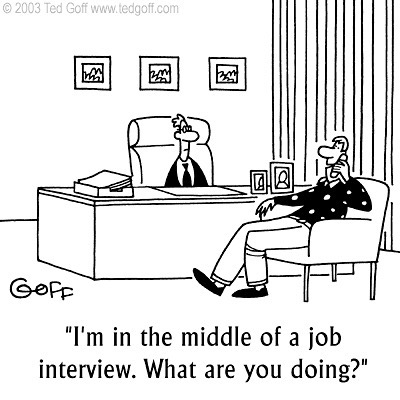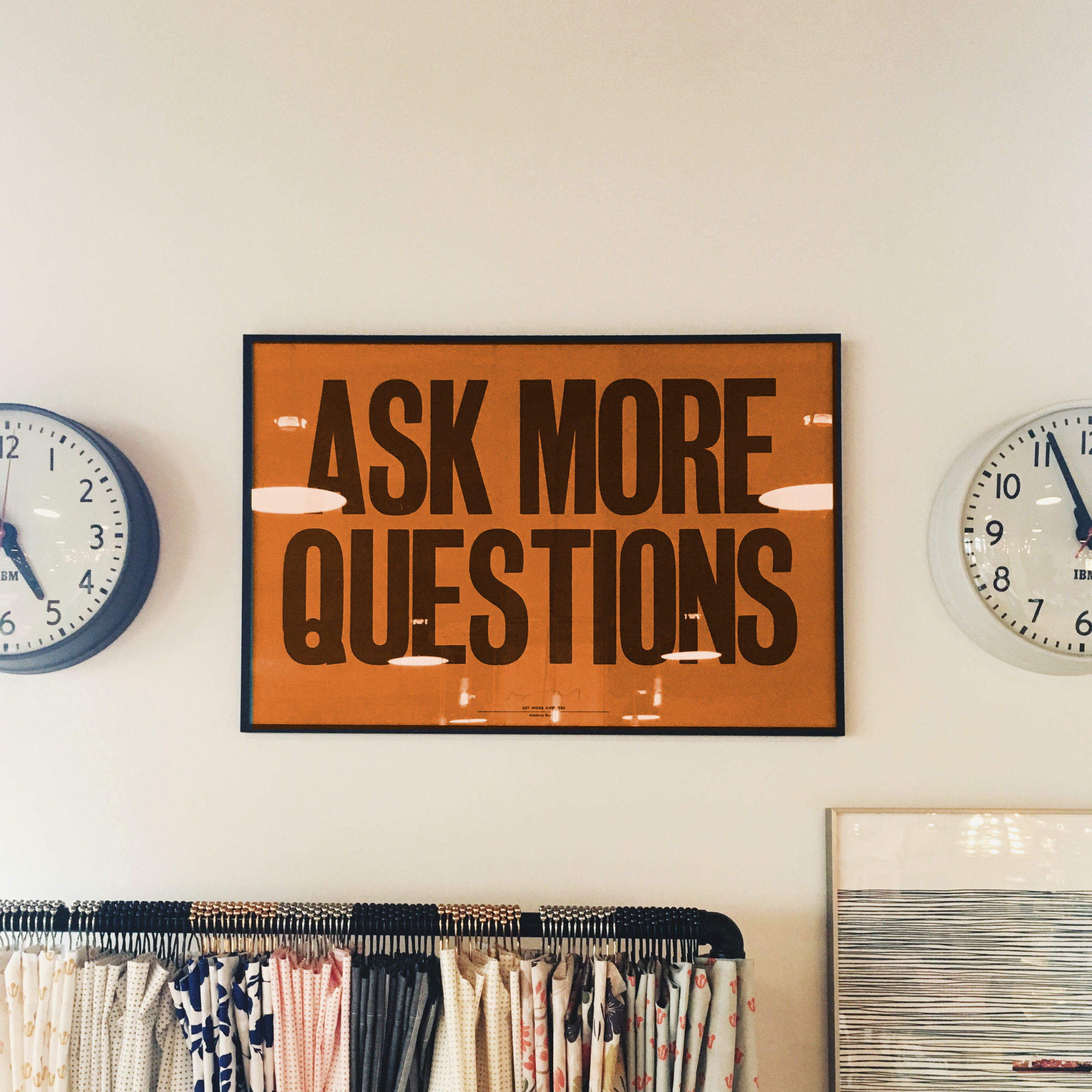So you’ve landed the interview for your dream job. Your mother, your brother and all your Facebook friends are rooting for you. The nerves set in as you walk out the front door, and then you go and do this:
1. Get there late!
How obvious is this? Time and time again people arrive late to their interviews. Part of your preparation includes knowing exactly where your interview is, how you’re going to get there and ensuring you’re there on time.
If your interview is at 9am, this means you need to be sitting in front of the interviewer at 9am, not arriving at the venue. Too often, candidates underestimate travel and parking restrictions and the amount of time it will take to get through security or reception. This leaves them arriving at the interview flustered and stressed.
To make sure you’re on time, carefully plan your transport options or do a practice run to the venue. Is there parking? Have you given yourself enough time to find the office?
There’s never a good apology for not being on time.
2. Not knowing what you have to offer
Seriously! Selfies abound, but ask a person to identify what their key strengths are and how they?re going to add value to an environment and suddenly there’s an uncomfortable silence. Cue the crickets.
You’ve got to know this: You need to be able to differentiate yourself. Find out what the key competencies and minimum experience is for you to be able to successfully perform the role, and measure yourself against these.
Use examples to illustrate your track record and previous successes. Did you tackle a tough situation? When did you put create value for the business?
3. Complaining about your current boss
No matter how justifiable your complaints are ? an interview is not the place to get it out into the open. Do not belittle your boss or current employer as you may come across as churlish or disloyal. Your potential future employer wants to know whether you will represent their company in a positive light, so keep this in mind when answering questions about your current or previous roles.
Own your mistakes if asked about them, and admit what you have learnt and how you have positively changed your behaviour ? just don’t drag down the boss with you.
4. Handling your phone
Engagement, rapport, synchronicity ? all this flies out the window when you break eye contact or try and glance surreptitiously at your phone. There is nothing more irritating than when a meaningful discussion is interrupted by the mobile phone. When you’re trying to convey your professionalism, you don’t want to be interrupted by flashing messages, phones vibrating on the desk or worse ? that horrible ringtone you set to your phone as a joke.
Keep it simple: before you walk in, turn your phone off.
Common sense can sometimes fail us when the nerves set in, so always check and double check your phone is actually switched off and don’t look at it until the interview is over and you have left the room.
5. Not asking any questions
It has happened to the best of us: you’ve made it to the end of a fantastic discussion with your interviewer and then they ask ?any questions??
At the end of the interview, companies will generally ask if there is anything further that you would like to know. This is your real opportunity to shine.
Ask your interviewer about the first problem the role will solve in the first 6 months or what the team likes about working for the company. Use the time to clarify any points the interviewer seemed unsure about or express your interest in the firm’s past projects.
Asking the right questions will help to showcase your fit for the role and allow you to find out whether the corporate culture and vision is right for you.
If you require support for your upcoming interview or would like to discuss career advice, please contact me via jean@peopleconnexion.com or find out more at www.peopleconnexion.com
– Jean Kilner, Principal Consultant




